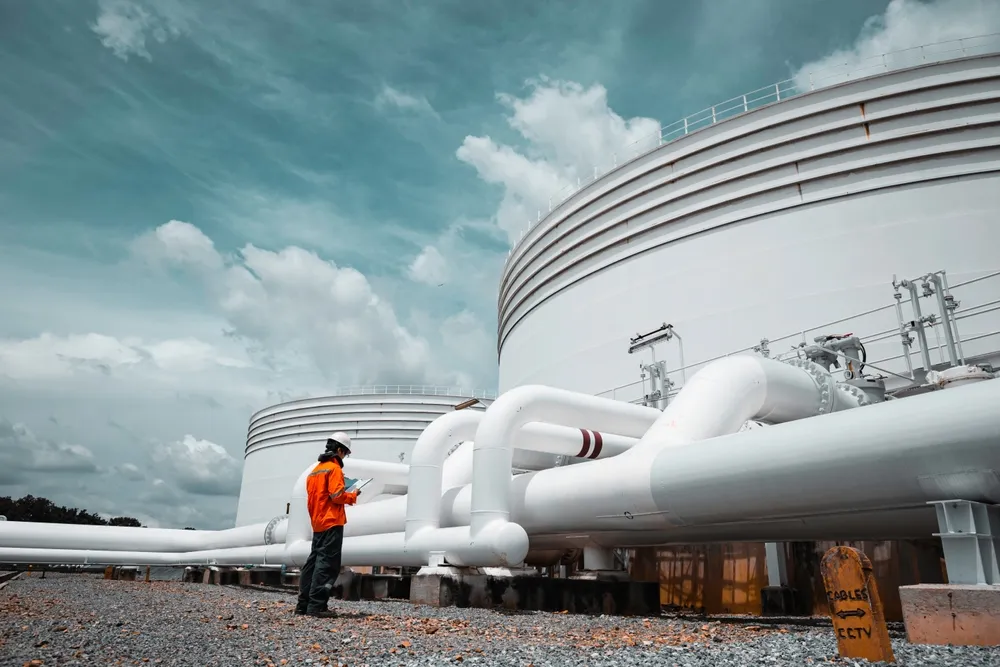Introduction:
The Gas Processing and Conditioning training course focuses on the design, specification, and management techniques of gas field production facilities and their influence on gas condensate project management. It provides a comprehensive overview of the functional equipment and operational processes used in gas treatment and processing facilities, with a special emphasis on troubleshooting technologies and their implementations.
Participants will engage in gas dehydration, sweetening, and processing processes, aiming to synthesize various processing methods. The course covers gas gathering, separation, and final treatment units, addressing issues related to producing gas suitable for sale, along with the measurement and technological limitations encountered in field and fiscal contexts.
Specifications for products such as Natural Gas, Condensate, Commercial Propane, and Butane will be presented, alongside the processes required to condition gas to meet these specifications. Hydrocarbon mass balance and production fluid allocation to productive zones will be included, with practical sessions to enhance understanding.
This training is designed to help participants appreciate the essential parameters involved in the functioning and design of production facilities, as well as the factors and assumptions that impact operational activities.
Objectives:
Participation in this Gas Processing and Conditioning course will enable participants to:
- Define inflow and outflow performance and system analysis in subsurface production operations.
- Comprehend the progression of treatment processes for gases.
- Understand gas dehydration, processing, absorption, refrigeration, fractionation, cryogenics, and LNG production.
- Identify normal operating parameters of the plant.
- Acquire knowledge of oil and gas processing, especially in LNG (NGL) gas processing.
- Familiarize themselves with basic transfer operations in the gas field and measurement methods.
- Understand conversion factors and data interpretation.
- Explore the compression processes of gas, including natural gas, slug catchers, and NGL recovery.
- Illustrate abnormal situations such as high liquid levels, heat loss, empty tanks, foaming, and clogged outlets.
- Monitor instrumentation management and control processes for gas and gas liquids.
- Address abnormal conditions like power loss, control loss, manpower shortages, foaming, and hydrate formation.
- Reinforce the significance of water in gas field operations and optimize gas treatment processes.
- Understand the procedure for condensate stabilization.
- Focus on troubleshooting and safety considerations.
Training Methodology:
- Interactive lectures
- Case studies
- Group discussions
- Simulation exercises
- Q&A sessions
Course Outline:
Unit 1: Natural Gas Processing Introduction:
- Natural Gas Engineering Basics
- Physical Properties of Natural Gas
- Production of Natural Gas
- Impurities in Gas
- Terms of the Contract
- Heating Value / BTU (British Thermal Unit) Significance
- Normal and Abnormal Modes of Plant Operation
- Warm-Up and Temporary Exploitation
- Natural Gas Liquids (NGL), Gas-to-Liquid (GTL), Liquefied Petroleum Gas (LPG)
Unit 2: Gas-Liquid Separation:
- Gas-Liquid Separation System
- Separators (Types and Sizing)
- Standard Variables: Pressure, Temperature, Flowrate, Level
- Wellhead Instruments, Controls, and Gas Measurement Equipment
- Actuation and Control Devices
- P, T, and Level Control
- Use of Instruments in the Field
- Process Operation: A Structured Approach
- Removal of Contaminants
- Specific Plant Problems of Process Plant Machinery
- Planning, Organization, and Management
- Control and Planning of Startup and Shutdown Procedures
Unit 3: Removal of Mercury, Hydrate Formation, and Dehydration:
- Mercury Presence in Natural Gas and Its Removal
- Processes Employed in Mercury Removal Units
- Conditions for Hydrate Formation
- Prevention and Mitigation Techniques for Hydrate Crystals
- Estimation of Water Content
- Control of Water Dew Point
- Systems and Methods of Dehydration
Unit 4: Dehydration Methods and Heavy Hydrocarbon Removal:
- Glycol Dehydration Unit
- Process Description of the TEG (Triethylene Glycol) Dehydration Unit
- Factors Affecting Performance for TEG Dehydration
- TEG Dehydration Troubleshooting
- Non-Product Related (NPR) Performance Degradation
- Removal of Heavy Hydrocarbons (LTS + Turbo Expanders Systems)
- Condensate Stabilization – Refrigeration System – Turbo-Expanders in Cryogenic Applications
Unit 5: Sweetening Systems:
- Acid Gas Removal (H2S, CO2)
- Sweetening Systems: Membrane System
- Troubleshooting and Problem Solving
- Risk Management
- Innovative Problem Solving Theory and Methodology Introduction
- Maintenance Effects on Operation
- Managing Environment, Health, Safety, and Quality


















